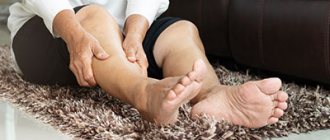Insomnia is a sleep disorder that is one of the most common. The medical term for insomnia is insomnia.
A person needs to sleep 7-8 hours a day. At the same time, the normal biological rhythm assumes that we sleep at night (in the dark) and are awake during the day. Life is structured in such a way that we still have to stay awake during the day (work, errands, etc.). And if we fail to get enough sleep at night, our performance decreases. First of all, intellectual abilities suffer. Trouble concentrating may occur, making the person vulnerable to accidents and injuries. Chronic insomnia is especially dangerous. In this case, the person becomes irritable and nervous, there is a general deterioration in health, immunity decreases, and memory deteriorates.
Insomnia
Typically, insomnia refers to the lack of sleep during that period of the night that a person reserves for sleep. There is an intention to fall asleep, but sleep deceives and does not come. From a medical point of view, the concept of insomnia is broader - it is not just insufficient duration , but also inadequate quality of sleep . If a person sleeps, but often wakes up during the night and ultimately does not get enough sleep, this is also insomnia. Another type of insomnia is difficulty falling asleep . Normally, a person falls asleep in the interval from 3 to 15 minutes. With insomnia, the process of falling asleep can take up to 2 hours or more. Waking up too early
also considered as a variant of insomnia: a person wakes up before the right time and can no longer fall asleep.
Manifestations of insomnia also include post-somnia disorders : if a person, after a night spent in bed, feels sleep-deprived, feels tired, weak, lethargic, this also indicates that his sleep is disturbed.
Prevention of insomnia: how to avoid insomnia
By following these sleep hygiene rules , you will speed up the process of falling asleep and ensure higher quality sleep:
Sleep hygiene
- Ensure the bedroom is darkened and soundproofed. If sound insulation is poor, use earplugs or a white noise generator. Lowered curtains will protect you from early sunlight and light flashes on the street. When waking up, on the contrary, you need to raise the curtains or turn on the light - this will give your body vigor;
- optimize the temperature regime. The best air temperature for sleeping is 15.5-18.3°C. The air should be fresh, so try to leave the window open. In winter, slot ventilation is suitable;
- the bed should be comfortable, the mattress should be thick enough, the blanket should not be too hot;
- Don't drink alcohol in the evening. It will ruin your sleep;
- Don't drink coffee in the afternoon. Caffeine is eliminated from the body within 12 hours or more;
- do not overeat at night;
- Organize your bedtime so that you take a bath 1-2 hours before you go to bed. An evening bath helps relax muscles and is therefore good for sleep; but the procedure itself is stimulating, and if you go to bed straight from the bath, it may be difficult to fall asleep;
- don't smoke in bed;
- lead an active lifestyle; do exercises; take a walk in the fresh air. The greatest activity should occur in the first half of the day. In the evening, before going to bed, it is useful to take a walk so that you feel moderate physical fatigue;
- do not sleep during the day, especially after 4 pm;
- learn to relax. Find your own way to relieve emotional stress. “Counting sheep” is not recommended: counting requires concentration, and concentration interferes with sleep;
- take care of your health. Pain caused by a chronic disease, as a rule, reminds itself at night, receding into the background during the day. It’s worth doing it as soon as possible; among other things, it will return the quality of your sleep.
What is insomnia
Insomnia, or in medical language - insomnia, is considered to be any deviation from normal sleep. Frequent awakenings in the middle of the night, prolonged (up to several hours) falling asleep and difficult awakenings, prolonged absence of sleep at night, shallow sleep - all this is considered to be manifestations of insomnia. Everyone has had periods in their life when they experienced the effects of insomnia on themselves. She especially likes to come before an important event, on the eve of a celebration or exam, when a person is making an important decision in life, to young mothers who hear the slightest rustle of the baby.
More often than not, insomnia is a byproduct of our nervous system, which is known to be unstable, especially in today's pace and lifestyle. The disease can have several types of manifestation.
Presomnia type of disorder
Characterized by prolonged falling asleep. At this time, a person experiences a physical need for rest, feels the desire to fall asleep, but cannot do this. The norm for falling asleep is 5-15 minutes. If after this time sleep has not occurred, we can talk about manifestations of insomnia. This is usually associated with neuropsychological disorders and occurs on the eve of exciting events or after important events. It occurs very often and usually goes away on its own as the emotional state improves.
Intrasomnic disorders
With this type of insomnia, sudden awakenings at night occur, followed by difficulty falling asleep or a complete lack of further sleep. This type of disorder makes sleep superficial, reminiscent of a normal nap and sensitive, when the sleeper is able to wake up from the slightest rustle. Insomnia in this case is caused by emotional swings, experiencing unpleasant events, mental disorders, sleep apnea and self-snoring, systemic diseases (thyroid gland, diabetes mellitus).
Postsomnia disorders
This type is even more common than the first. Its main symptom is a lack of strength and desire to open your eyes, a long awakening, weakness and fatigue even after a whole night of restful sleep. A person suffering from this type of insomnia feels drowsy throughout the day and fails when trying to replenish energy and fall asleep. In addition to psychological reasons, in this case there may be a deficiency of vitamins and minerals, late going to bed, blues and emotional stress. Usually, with this disorder, a person easily falls asleep and sleeps soundly at night, but waking up in the morning causes negative emotions and physical impotence.
But before diagnosing insomnia, it is worth assessing your habits, current state of affairs, and emotional state. Often the reason may lie on the surface.
When is it important to see a doctor?
As a rule, the onset of insomnia is very difficult to cope with on your own. Traditional medicine and medicines do not always have a positive effect on the situation. In some cases they may be ineffective. Therefore, it is better and more correct to seek help from a medical specialist if you have such a problem.
It is especially important to visit a doctor for those who suffer from insomnia for a long time. If the rest disorder continues for more than a month, no one except a specialist can help.
Causes of insomnia
Psycho-social stress. For example, this happens due to excessive anxiety about money and work, illness of children and loved ones. When crises happen in your personal life and you conduct an internal dialogue, bringing to perfection what you haven’t done in reality.
Depression
of a different nature, a state of blues and anxiety;
Increased brain activity
and emotional overarousal, both positive and negative. This often happens during sessions, before and after important business meetings, before trips and vacations, during periods of intense activity and multitasking. elderly age;
Discomfort
both mental and physical, the influence of extraneous sounds, light, noise. Darkness is one of the main conditions under which the sleep hormone melatonin is produced in sufficient quantities. The slightest lighting, watching TV or a phone monitor before bed can affect the quality of melatonin production and disrupt sleep. Often the cause of poor sleep can be discomfort caused by bedding - an uncomfortable pillow, too hard, too soft, uneven mattress. In this case, solving the problem becomes less problematic;
Non-compliance with the regime
day and biorhythms. For example, a shift work schedule, frequent time zone changes. This often happens with simple night owls, the so-called “night owls,” whose peak activity occurs in the afternoon and evening. It is difficult for them to go to bed on time, it is difficult for them to fall asleep and wake up at the appointed early hour, because a lot of time, energy and effort have been spent trying to sleep;
Alcohol
and caffeinated drinks. They also cause sleep disturbances. Especially if drinking such drinks happened in the evening. Needless to say how harmful they are for healthy sleep. Alcohol is wrongly considered by some to be a sedative and hypnotic. While it may actually make it easier to fall asleep, the quality of your sleep will suffer significantly. And all because alcohol inhibits the REM sleep phase. The same one during which the body’s strength is restored, when we dream and our brain organizes the information received. In addition, alcohol and caffeine can put a strain on the cardiovascular system, provoke snoring and sleep apnea, which act like a time bomb on the body, provoking both mental and functional disorders;
Apnea
- breathing disorders that can occur under the influence of substances, or due to the structural features of the nasopharynx, when obstacles appear in the air path in the form of a sticky palate and uvula, a deviated nasal septum, adenoids, cysts, allergies or a runny nose.
Taking medications (sympathomimetics, anorectics), drugs. Carefully read the instructions for any medications you take. One of the side effects may be increased excitability. It is for this reason that drugs such as echinacea, ginseng and many other adaptogens are not recommended to be taken in the afternoon, but rather from morning until lunch. Diseases and disorders.
Infectious and colds, fever, itchy skin and pain of various locations and origins;
Endocrine diseases
accompanied by hypoglycemia, frequent urination, dry mouth. Do you drink a glass of water before bed? Do you wake up to drink or from feeling hungry? It's time to change something;
Neurological diseases
such as dementia, Parkinson's disease, traumatic brain injury, neuroses or schizophrenia.
Alternative methods
There are alternative ways to deal with insomnia. They can be combined with traditional methods or used separately:
- Breathing exercises. “Yoga breathing” is an excellent way to relax, and is useful to practice immediately before falling asleep. In a simplified version, it looks something like this: lie on your back, place your palms on your stomach. As we exhale, we draw in our stomach as much as possible (we control its movement with our hands, but do not press!), hold our breath for 2 to 10 seconds, take a full slow breath in with our stomach (as if the air is liquid and we are drawing it in through our nose), again a short delay, exhale through the mouth. Repeat from 20 to 50 times in increasing order.
- Warm bath. Especially useful after active physical activity or a busy day at work. It dilates blood vessels, activates blood circulation, lowers blood pressure, and relieves muscle spasms. It is useful to add a glass of sea salt and 15-20 drops of essential oil to the water: lavender, lemon balm, neroli, myrrh, cypress, vanilla. The bath should be warm, not hot - the water temperature is between 40-55oC, the procedure time is 20-30 minutes. After the bath, pat your body dry with a towel and immediately go to bed.
- Acupressure. The effectiveness of influencing biologically active points of the human body was proven by ancient healers, and since then this knowledge has been traditionally used in the east. The West is just mastering acupressure techniques, but they are successfully used to treat insomnia. But here it is very important to choose the right points, otherwise you can get the opposite result - a feeling of vivacity and a surge of strength, and then you definitely won’t be able to fall asleep. The easiest points to detect are the “third eye”, located between the eyebrows and the middle of the sternum. It is enough to massage them for a couple of minutes to feel relaxation.
- Meditation. In the classical sense, meditation is maintaining clarity of consciousness while completely relaxing the body, for which the brain concentrates on a certain thought or picture and remains in this state for some time. Many beginning practitioners fall asleep if they meditate while lying down. This effect occurs because by fully concentrating on the task at hand, the brain ceases to have control over the body, and it relaxes perfectly - just what is needed to overcome insomnia.
- Flickering light. Soft flickering lighting soothes, relaxes vision, and switches the brain to contemplation. That's why everyone loves to look at live fire or the twinkling of stars in the night sky. You can arrange something similar at home: install a corresponding image on a monitor or plasma screen, buy a lamp with a changing color or the effect of rotating stars, use flickering garlands or light tubes. It is advisable for the light to turn off automatically after falling asleep.
It is important to remember that traditional methods can ensure normal sleep only if you have managed to give up all worries and problems and switch your brain to something pleasant (or better yet, turn it off altogether). This is what all the techniques described above are aimed at. You must completely immerse yourself in what you are doing so that new sensations “displace” everything unnecessary from your head and allow your thoughts to calm down.
Author: Anna Alexandrova
Consequences of insomnia
Before taking action, it is important to assess the scale of the disaster. Lack of quality sleep and the slightest disturbance lasting from a week to 10 days is not a reason to panic. The episodic nature of disorders of varying sleep duration occurs in everyone. But serious disorders that torment for months become chronic and have consequences.
- Problems concentrating,
- Difficulties with remembering and learning,
- Decreased performance
- Apathy or obsessiveness
- Development of depressive states
- Loss of interest in life
- Irritability and aggression
- Manifestation of somatic diseases
- Chronic fatigue
- Arterial pressure
- Headache
- Disorders of the cardiovascular system
- Excess weight
- Edema
- Deterioration in skin quality and overall appearance
And this is only a small part of the consequences of insomnia, which can be avoided by starting insomnia therapy or its prevention in time. The best remedies for insomnia
Natural preparations
But there are situations in which treating insomnia with folk remedies is impossible or problematic. For example, on trips, business trips or under other circumstances. And then the ideal remedy against insomnia will be modern ready-made drugs with a completely natural composition, the effect of which is even higher, since in formulas specially developed by scientists they combine carefully selected components in the correct proportions.
An example of such an effective remedy for insomnia can be “Sonylux” drops, which contain extracts from 32 medicinal plants, an extract from beaver stream, unique berries of alishan gaba, and lofanta. The drug increases cerebral circulation, providing an additional flow of oxygen and at the same time has a mild sedative effect, allowing you to quickly relax your muscles and fall asleep.
With long-term use, it completely cures insomnia without causing addiction, like many sleeping pills. "Sonylux" helps get rid of chronic fatigue, anxiety, irritability, and nightmares.
The only contraindication to its use is individual intolerance to individual components. During pregnancy, before treating insomnia with Sonilyux, you should consult a doctor.
You can now buy a whole range of similar drugs in chain and online pharmacies. Also very popular are: “Fitosed” (contains alcohol, contraindicated during pregnancy), DreamZzz (100% natural composition), “Novopassit” (contains plant extracts and chemical components), etc. When choosing a product, it is better to consult a doctor or pharmacist.
The best remedies for insomnia
Medicines
Melaxen
A synthetic analogue of the hormone melatonin, responsible for sleep. The drug quickly normalizes and correctly regulates biorhythms. Increases the depth and quality of sleep, eliminates periodic night awakenings. After a night with Melaxen, the feeling of weakness disappears, lethargy and fatigue disappear, dreams become bright and rich. Also suitable as an adaptogen when changing time zones. Reduces negative reactions to stress. Does not cause dependence or addiction.
Recommended course as a sleeping pill: 1 tablet 1 time per day before bedtime. As an adaptogen: the day before the expected departure and for 2-3 days after changing the time zone before bed.
Mälarena
The drug is an analogue of Melaxen. Also indicated for circadian rhythm disorders: flights with changes in time zones, violation of the daily routine, including shift work schedule. Helps eliminate weather dependence syndrome, fatigue, insomnia in older people, and reduces depressive syndrome.
Recommended course: For insomnia and sleep disorders, 1 tablet once a day, 30 minutes before bedtime. The duration of taking the drug is from 1.5 to 2 months. When changing time zones the day before departure and for 2-5 days after, 1 tablet 1 time per day before bed.
Melarithm
The effect on the body is similar to previous drugs. Normalizes circadian rhythms; Makes sleep deep and of high quality, eliminates night awakenings and promotes rapid fall asleep. But in addition to regulating sleep, melarhythm helps improve well-being, mood, and eliminates lethargy and morning drowsiness. It has a pronounced immunostimulating and antioxidant effect.
Recommended course: 1.5–3 mg 30 minutes before bedtime, 1 time per day. Duration of admission is no more than 7 days.
Herbal preparations
Nervochel
A homeopathic medicine designed to reduce increased nervous excitability and normalize sleep. Used for neuroses and menopause in women. Eliminates symptoms of depression and blues, VSD.
Recommended course: 2-3 weeks,
dissolve 1 tablet under the tongue 3 times a day 30 minutes before meals or 1 hour after meals.
Motherwort forte Evalar
Motherwort has a pronounced calming effect, strengthens the nerves, and puts the cardiovascular system in order. The advantage of the drug is that it additionally contains magnesium, and as is known, this microelement plays a key role in the functioning of the nervous system and eliminates muscle excitability. In combination with vitamin B6, which is the main link in the functioning of the nervous system, magnesium is better absorbed by the body. The drug performs a complex effect - it normalizes the emotional state, relieving anxiety and aggression, and at the same time improves sleep.
Recommended course: 3-4 times a day, 1 tablet for 3-6 weeks.
Novo-passit
Completely herbal preparation. Recommended for neurasthenia, increased anxiety, emotional instability, aggressiveness and irritation. Helps overcome fears, eliminate distraction and fatigue. Helps cope with headaches and mild forms of insomnia and periodic sleep disorders associated with psychological tension and stress. The advantage is that it is acceptable for children over 12 years of age.
Recommended course: 5 ml 3 times a day before meals with the prospect of increasing the dose to 10 ml per dose. If severe fatigue or depression occurs, it is necessary to reduce the morning and daily dose by 2 times and take 2.5 ml in the morning and afternoon and 5 ml in the evening. The interval between doses of the medicine should be 4-6 hours.
Knightwell
An excellent and effective drug, with many positive reviews. The herbal composition is enhanced with Magnesium and vitamin B6. Includes mechanisms that are responsible for maintaining normal sleep and deep sleep. Waking up in the morning becomes comfortable, light, without feeling groggy and tired. In addition, Nightwell promotes better concentration, memory and performance, because Magnesium in combination with vitamin B6 has a beneficial effect on the nervous system.
Recommended course: just 1 capsule before bedtime. Duration of treatment is 3 weeks.
Breathe
“Another technique that helps me is mindful breathing, which helps me slow down and relax any tense areas of my body. As you inhale and exhale, the tension gradually subsides as the breath massages the body from the inside, releasing the stress that we inevitably accumulate throughout the day.”
Arianna Huffington, author of The Sleep Revolution
Read also
How to breathe correctly: tips and exercises
Proper breathing will help you focus, relax and become more energetic.
How to get rid of insomnia
Any changes in life require time and effort. Internal effort and a real desire to change the situation for the better. To get rid of insomnia, you will have to reconsider your lifestyle, first of all, paying special attention to four pillars:
- Sleep hygiene.
This is not only water procedures and ritual teeth cleaning. Sleep hygiene is a broad concept. Stop eating and drinking at least 3 hours before bedtime; in the evening, try to use dim lighting; Avoid reading books, scrolling through social media feeds immediately before bed, and do not fall asleep with the TV on; At night, turn off electrical appliances in the bedroom, if any, turn off the sound and Internet on your smartphone; - Control of emotions.
Nerves are the main cause of all human troubles and joys. Like any instrument, nerves need tuning, prevention, cleaning and strengthening. It is important not only to make daily efforts to maintain your emotional state, but also to regularly support the nervous system with vitamins. Moreover, change your attitude towards yourself by starting to observe sleep hygiene - go to bed early, ventilate the bedroom, learn how to relax before bed, so that internal dialogues do not arise in your head as a consequence of the day. - Diet.
We are what we eat. The statement is absolutely true in matters of combating insomnia. Fatty, spicy, salty foods, fast food and abuse of sugar, sweet and alcoholic drinks can have such a strong impact on the body that insomnia very quickly comes to such belly celebrations. It is better to include pumpkin and pumpkin seeds, sesame seeds, spinach, cottage cheese in your diet - such food contains amino acids and microelements that have a beneficial effect on the nervous system, and therefore on the quality of sleep. - Taking care of your health.
Physical activity, sports and general activity help the body to be in good shape, which means maintaining the level of serotonin and endorphins in sufficient quantities so that the nervous system feels good. This means your sleep will be of high quality, calm and complete. But, doing physical exercise before bed is not the best idea, because at this moment the nervous system comes into a state of excitement. In the evening, breathing practices and yoga are best.
Non-drug methods
To treat insomnia, not only herbal infusions, baths and aromatherapy are used, but also other equally effective methods. Treatment with leeches helps well in such situations. This method is called hirudotherapy. Leeches enrich the human body with oxygen, the deficiency of which is one of the primary causes of poor sleep.
For insomnia, hirudotherapy is considered a fairly effective method, only here you need to know how to choose biologically active points and where to place the leeches. You cannot carry out this treatment on your own. Such procedures can only be carried out by an experienced specialist.









